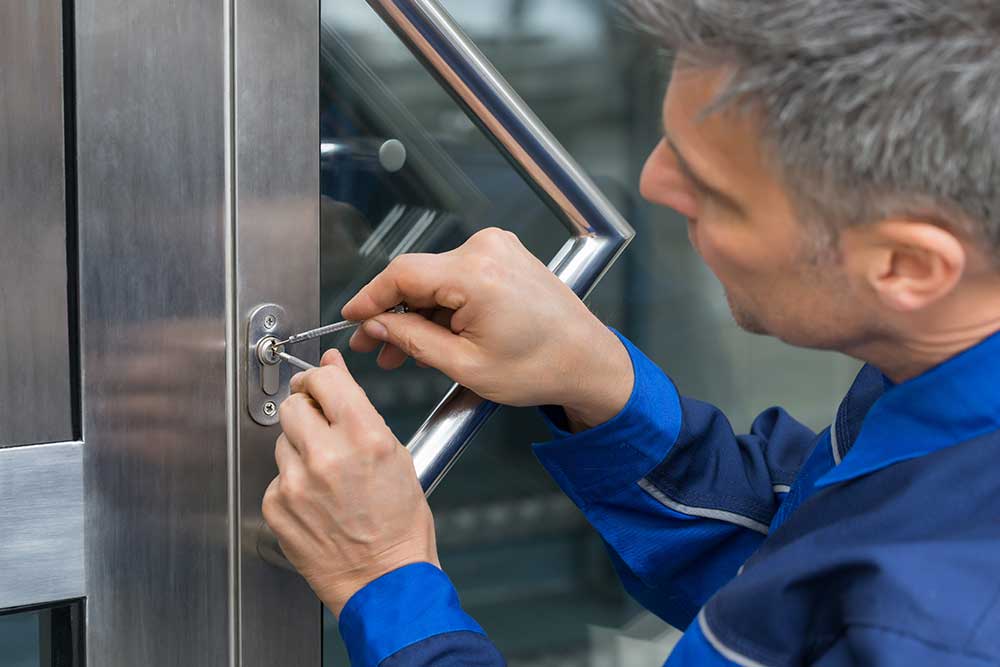Disclaimer: The information on our website is provided for general information purposes only. We make no representations or warranties of any kind, express or implied, about the completeness, accuracy, reliability, suitability or availability with respect to the website or the information contained on our website for any purpose. Any reliance on such information is therefore strictly at your own risk and we are not liable for any damages or losses arising out of or resulting from your reliance on any information contained on our website.
A locksmith installs new locks and replace or fix locks that no longer function. They may also create keys or make duplicate keys for clients. Locksmiths don’t just work on locks at a home or business. There are roadside service locksmiths and forensic locksmiths.
Watch a video to learn what a locksmith does.
How to Become a Locksmith

Most locksmiths have at least a high school diploma and you can learn this trade on-the-job. You can also become certified as a locksmith through Associated Locksmiths of America which outlines the various certifications available. You can gain your certification in the foundations of locksmithing and work your way up all the way to a master locksmith. There are even certifications to become a safe technician. According to ALOA, the mandatory categories to certify in include:
- Codes and Code Equipment Cylinder Servicing
- Key Blank Identification Key Duplication
- Key Impression Professional Lock Opening Techniques
- Lockset Functions Lockset Servicing
- Basic Master Keying Cabinet, Furniture and Mailbox Locks
Job Description of a Locksmith
Locksmiths uses hand tools and machines to do their job. To make keys they would use key cutting machines. They would also use hand tools in order to disassemble and fix any locks that may be broken. Their job may be more technical as security becomes more technologically advanced so they may gain additional skills to work with high-tech security systems and safes.
Their job often requires travel to businesses or homes and they may even work to help unlock vehicles.
Locksmith Career Video Transcript
As long as human nature includes criminal activity, we’re going to need locks, keys, combinations, and safes. That means there will always be a need for the precision skills of locksmiths and safe repairers. We depend on these professionals to install new locks and safes, and repair them when they break. And then there’s human error. Who hasn’t accidentally locked themselves out of their home before? When you lock your keys inside and you’re running behind schedule, the locksmith who rescues you is your new favorite person.
Most jobs require a high school degree, and some mechanical knowledge—whether from related work experience, the military, or vocational school. Basic locksmith skills, such as making keys and lock repair, might be learned on the job at a hardware store, or in a handyman’s position. For companies that specialize in security systems with a more complex electronic design, you can expect some on-the-job training. Trustworthiness and a clean record are factors that will be welcomed by your employer and by your thankful customers!
Article Citations
Bureau of Labor Statistics, U.S. Department of Labor, Occupational Outlook Handbook, Locksmiths.
National Center for O*NET Development. 49-9094.00. O*NET OnLine.
The career video is in the public domain from the U. S. Department of Labor, Employment and Training Administration.

